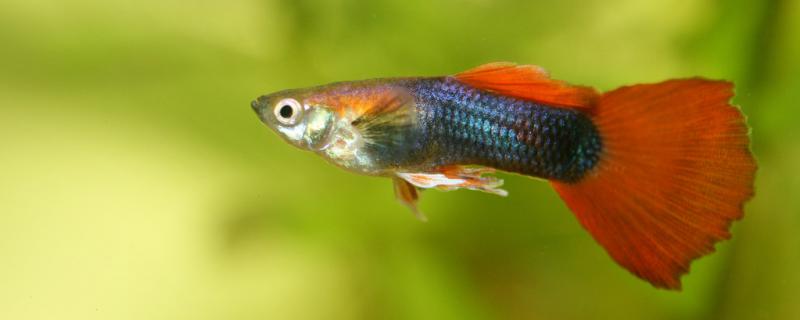
? During estrus, the female guppy's abdomen bulges and the fetal spot turns black, while the male's anal fin turns into a reproductive foot, and then chases the female constantly, during which fertilization is completed. Guppies are ovoviviparous, so internal fertilization. After fertilization, female fish can store sperm and reproduce themselves even if no male fish mates later. Guppies can lay eggs about four weeks after fertilization. When spawning, they should be isolated separately, and after spawning, both female and male fish should be fished out. Because they don't take care of small fish and may eat them.
should we pay attention to when breeding guppies? It's better to choose a bigger tank when breeding guppies, because the reproduction of guppies is relatively large. The water temperature should be controlled at 26-28 degrees, or 2 degrees higher than the daily temperature, because the female guppies and newborn fish are weak at the time of birth. The PH value should be controlled between 6.8 and 7.4, which is conducive to the hatching of fish eggs. Attention should also be paid to a variety of aquatic plants, which can allow fish eggs to attach to them and avoid being eaten by female fish. Female fish need to be kept alone for 2-3 days after birth, which is conducive to their recovery, and young fish need to be transferred to vats after 2 weeks of birth.